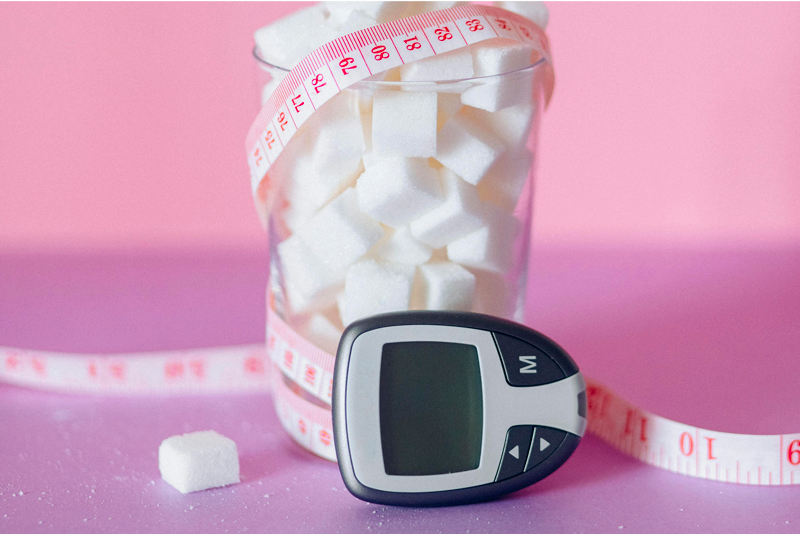
What are the symptoms of type 2 diabetes?

Type 2 diabetes develops quietly in the body over many years. Moreover, it is estimated that in France alone, up to 800,000 people have type 2 diabetes without even knowing it.
During this time, no signs of the disease are seen. As a result, half of all diabetes diagnoses are made at the same time as the first complications. This is why special attention should be paid to the first symptoms of type 2 diabetes.
The various symptoms of type 2 diabetes
A person with type 2 diabetes experiences signs of excess glucose in the blood in several ways.
« 1 in 10 adults is prediabetic »
– www.idf.org : Diabetes facts & figures 2021
Dehydration
The excessive proportion of glucose in urine causes a feeling of a permanently dry mouth and therefore severe thirst. For this same reason, the body feels the need to flush out toxins more regularly. As a result, a person with diabetes suffers from an increased need to urinate.
Dietary problems
The lack of insulin production in the pancreas, or resistance to the hormone, leads to constant hunger. In addition, the improper uptake of glucose leaves muscle cells and organs under-nourished. Unexplained weight loss follows, as well as permanent fatigue.
Lack of oxygenation in the blood
Blood sugar levels that are too high have the effect of reducing blood flow. Oxygen therefore circulates more slowly in the blood, increasing shortness of breath after the slightest exertion. There are other complications due to oxygenation disorders, too. These are longer healing times and an increased risk of skin infections (abscesses, boils and fungal infections).
Diabetic neuropathy
Atingling sensation in the fingers and toes is caused by a neurological disorder. One of the signs of high blood sugar is diabetic neuropathy and it can be relieved with the right treatment.
Other symptoms
Finally, other disorders can be detected when a person contracts type 2 diabetes:
- The development of visual problems
- An increase in urinary tract infections
- Erectile dysfunction
The importance of diagnosing prediabetes
The symptoms of type 2 diabetes only appear after many years. There is a good reason for this as a silent phase precedes the disease, during which blood sugar increases very gradually. During this transition stage, the glucose level in the blood is too high to be considered normal. However, it is not enough for the person to be considered diabetic.
This phase is called prediabetes. It does not sound like a disease, and those diagnosed with it have no greater risk of complications than a healthy person. Despite this, the diagnosis of prediabetes must act as a triggerto prevent the development of type 2 diabetes.
It is estimated that prediabetes affects nearly 541 million people worldwide. Many are unaware of the condition. However, the detection of prediabetes can be seen as good news because it can be reversed.
Indeed, if simple lifestyle and dietary changes are made in time, prediabetes will subside and eventually disappear, taking with it the risk of contracting type 2 diabetes and serious health complications. A sedentary lifestyle, being overweight or obese and a poor diet are all factors that foreshadow prediabetes.
To overcome prediabetes, the actions required are rather basic. Weight loss and lower blood pressure are essential. A suitable diet, low in sugars and fats, and regular physical activity are enough to reverse the trend.

Continue reading :
- What is diabetes?
- Diabetes summarised in three diagrams
- How is diabetes diagnosed?
- Who is affected and what are the health risks?
- What is the difference between diabetes and prediabetes?
- Type 2 diabetes: the role of food
- The role of physical activity in combatting diabetes
- Managing stress to avoid type 2 diabetes
Our latest publications
Want to learn more about topics related to blood sugar management?
Here are our most recent blog posts!


Contact information
51 Avenue F. Lobbedez
CS 60946
62033 Arras Cedex
France
Tel : +33 (0)3 21 23 80 00
Fax : +33 (0)3 21 23 80 01




